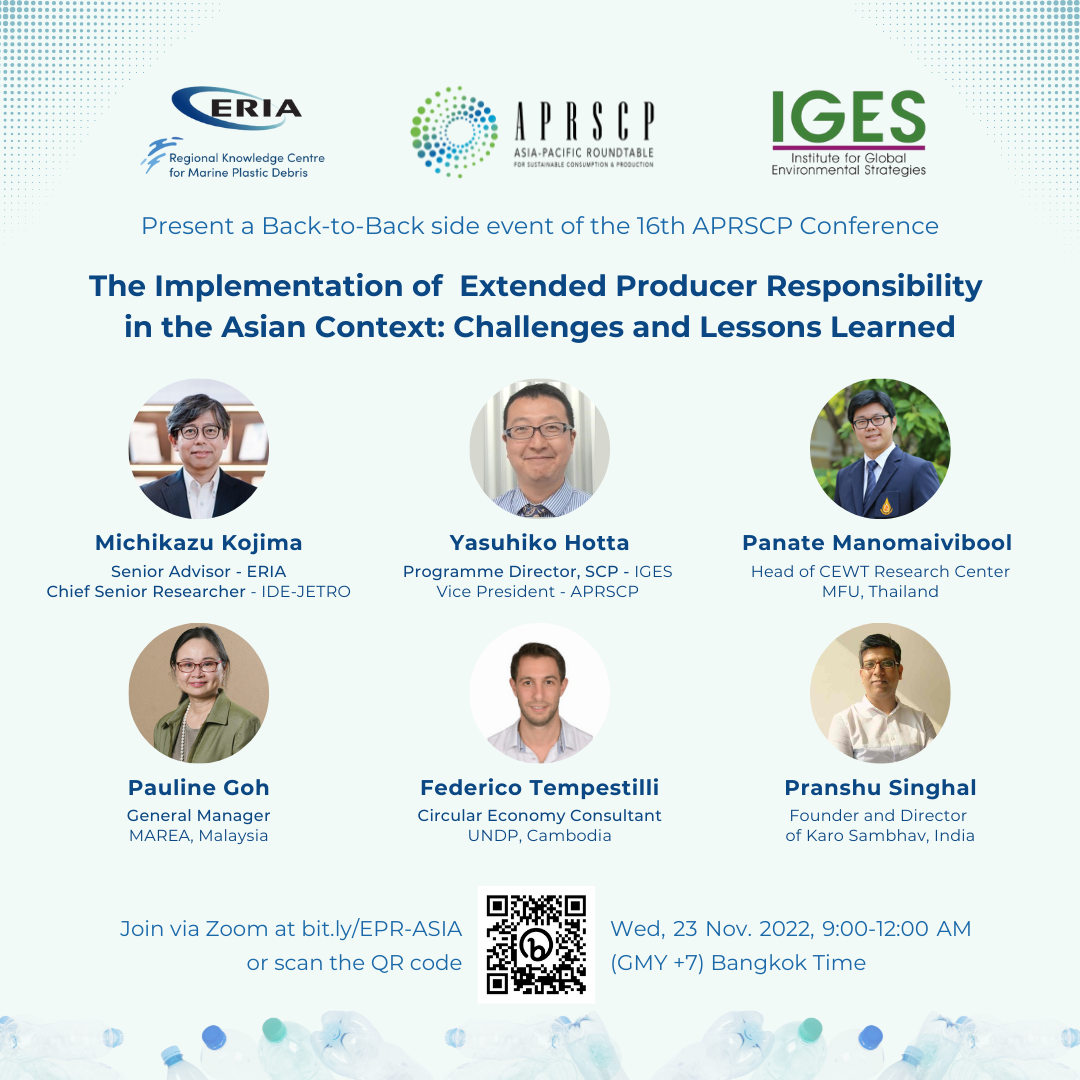Extended Producer Responsibility (EPR) is an environmental policy approach that extends a producer’s responsibility for a product to the post-consumer stage of the product’s life cycle. To respond to the increasing amount of post-consumer waste, including plastics, a number of countries have started introducing this “polluter pays principle” as their policy instrument. In Asia, some countries have implemented the EPR systems, some with a longer experience that dated back in 1995.
To introduce the key concepts and objectives of EPR for plastic waste reduction in the Asian context, as well as to discuss the main challenges and key takeaways of the system, the Regional Knowledge Centre for Marine Plastic Debris of ERIA, along with the Institute for Global Environmental Strategies (IGES) and the Asia Pacific Roundtable on Sustainable Consumption and Production (APRSCP) organize a hybrid event entitled ‘The Implementation of Extended Producer Responsibility in the Asian Context: Challenges and Lessons Learned’. This event is part of the 16th Asia Pacific Roundtable on Sustainable Consumption and Production (APRSCP 2022: Carbon Neutral Event): ‘Bridging Net Zero Transition by SCP and Circular Economy’.
Event Details
- Date: Wednesday, 23 November 2022
- Time: 9 AM – 12 PM (Bangkok Time/UTC +7)
- Venue: Patthumwan Princess Hotel, Bangkok, Thailand (hybrid event)
For more information, visit: ERIA-IGES-APRSCP Hybrid Event: ‘The Implementation of Extended Producer Responsibility in the Asian Context: Challenges and Lessons Learned’



